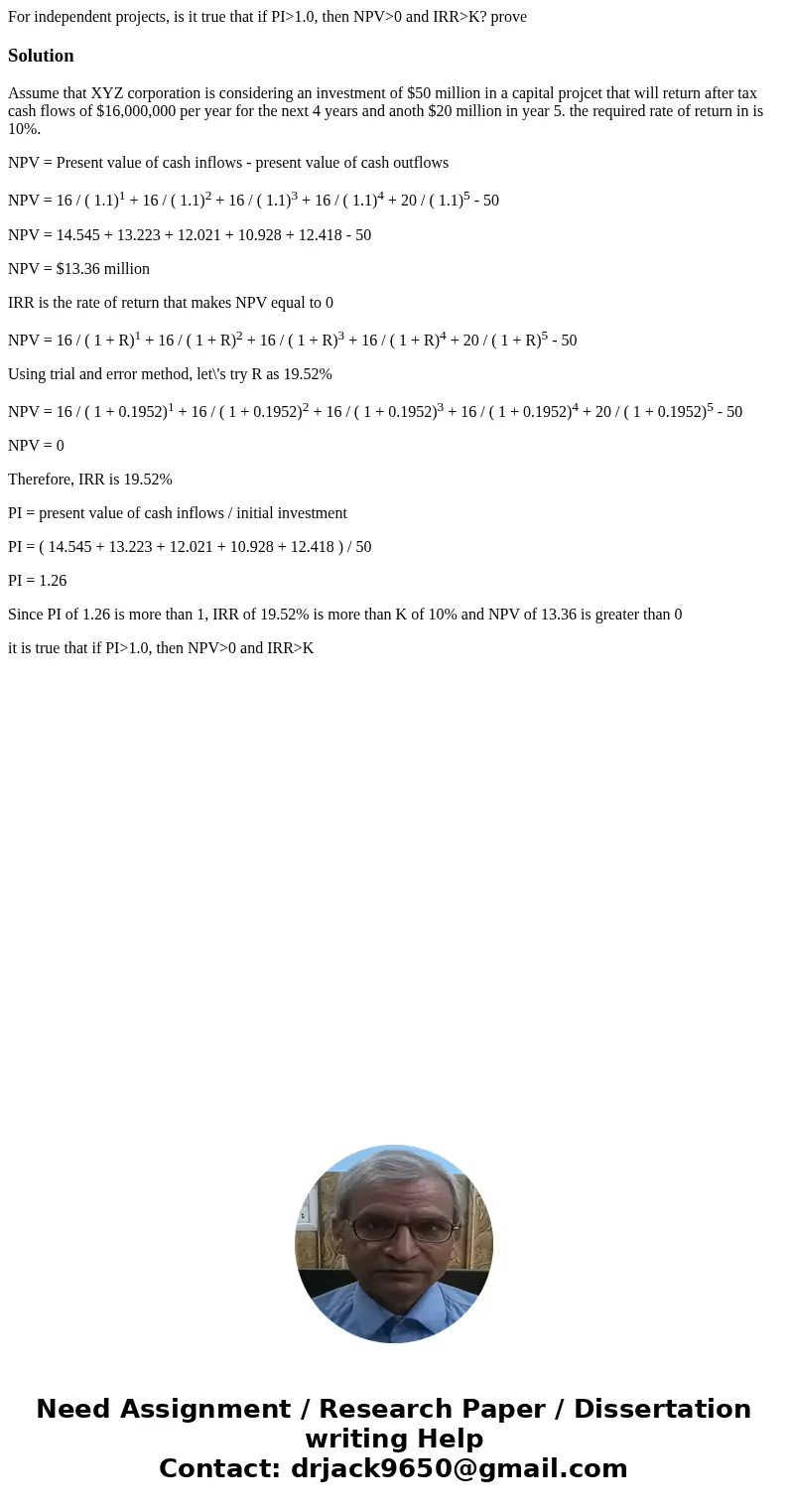For independent projects is it true that if PI10 then NPV0 a
For independent projects, is it true that if PI>1.0, then NPV>0 and IRR>K? prove
Solution
Assume that XYZ corporation is considering an investment of $50 million in a capital projcet that will return after tax cash flows of $16,000,000 per year for the next 4 years and anoth $20 million in year 5. the required rate of return in is 10%.
NPV = Present value of cash inflows - present value of cash outflows
NPV = 16 / ( 1.1)1 + 16 / ( 1.1)2 + 16 / ( 1.1)3 + 16 / ( 1.1)4 + 20 / ( 1.1)5 - 50
NPV = 14.545 + 13.223 + 12.021 + 10.928 + 12.418 - 50
NPV = $13.36 million
IRR is the rate of return that makes NPV equal to 0
NPV = 16 / ( 1 + R)1 + 16 / ( 1 + R)2 + 16 / ( 1 + R)3 + 16 / ( 1 + R)4 + 20 / ( 1 + R)5 - 50
Using trial and error method, let\'s try R as 19.52%
NPV = 16 / ( 1 + 0.1952)1 + 16 / ( 1 + 0.1952)2 + 16 / ( 1 + 0.1952)3 + 16 / ( 1 + 0.1952)4 + 20 / ( 1 + 0.1952)5 - 50
NPV = 0
Therefore, IRR is 19.52%
PI = present value of cash inflows / initial investment
PI = ( 14.545 + 13.223 + 12.021 + 10.928 + 12.418 ) / 50
PI = 1.26
Since PI of 1.26 is more than 1, IRR of 19.52% is more than K of 10% and NPV of 13.36 is greater than 0
it is true that if PI>1.0, then NPV>0 and IRR>K

 Homework Sourse
Homework Sourse